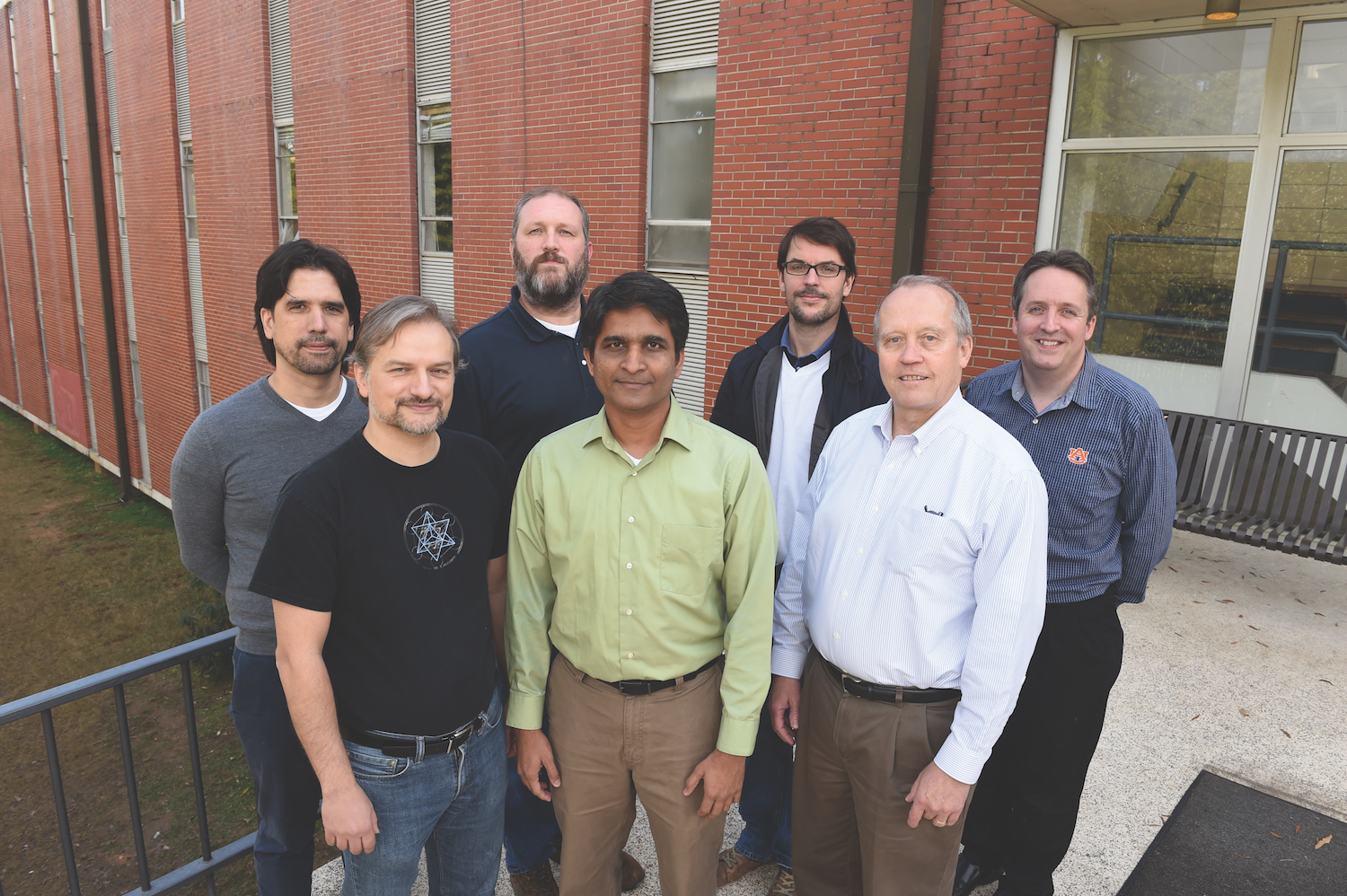Award for Excellence
The Department of Physics was selected to receive the 2017 University Senate Departmental Award for Excellence in Education. The department will use the award, a $30,000 grant to be administered in three yearly installments of $10,000, for activities to enhance teaching and learning.
“The award was well deserved,” said Auburn Senate Chair Daniel Svyantek. “It recognizes the department’s commitment to improving both undergraduate and graduate education. The department’s efforts reflect the dedication to and the importance of teaching excellence in the STEM disciplines.”
Established at Auburn in 2013 and first presented in 2014, the award is administered by the University Senate Teaching Effectiveness Committee.
Each year, academic departments across campus are invited to submit to the Teaching Effectiveness Committee proposals summarizing the departmental philosophy of teaching and learning and a narrative describing the approaches used to achieve and measure excellence in those areas. Four finalists were selected to give presentations detailing learning excellence and plans for future activities to enhance teaching and learning.
The winning proposal was written by a team of department faculty members that included Michael Fogle, Stuart Loch, Ameya Kolarkar, Uwe Konopka, Marcelo Kuroda, and Guillaume Laurent.
“The department’s faculty cares a great deal about the teaching that we do, and it’s something that the faculty strives to do well,” said physics' chair James Hanson. “The faculty actively work together to improve the teaching that we do and what the students learn.”
The Department of Physics has more than 25 faculty, 60 undergraduate students, and 50 graduate students. Each student receives a sort of individual attention that is usually only available at much smaller schools.
Additionally, the department has one of the leading plasma physics programs in the country, along with strong research in atomic, molecular, and optical physics, and condensed matter/solid states. In 2019, the department will move to the newly renovated Leach Science Center, where most of the laboratory facilities are currently housed. The state-of-the-art building is designed to foster collaboration between faculty, house undergraduate laboratory classrooms, and connect faculty and graduate students in the lab.
Plans for the award funding also include faculty summer stipends to develop and implement online math remediation videos for undergraduate students. By using online math remediation resources, undergraduate students are able to bridge the gap between the math they’ve learned in math classes with how they need to apply those concepts in physics.
“We want to make the teaching that we do more effective so students can either learn it more thoroughly or learn it in less time,” said Hanson. Online math remediation resources are underway with the non-calculus-based Introductory Physics course predominantly taken by pre-health professionals, and the Department of Physics is planning to extend this to the calculus-based Engineering Physics course.
The department will also use faculty summer stipends for training and development of active learning components. “We have a lot of people who use active learning in the department,” said Hanson, “but one of the things that slows new faculty down is that it’s really a different way of teaching. By sharing resources and practices that people have used and found work, everybody doesn’t have to reinvent the wheel.”
Another focus on faculty includes providing an active-learning mentor for new faculty who will support their active learning development, introducing a common repository of teaching materials and assessment data, and furthering the teaching assistant training program so students graduate with a deep understanding of evidence-based instructional practices.
“I think the changes we’re making are going to keep the faculty’s enthusiasm at a high level and ensure that good ideas and practices are propagated to others rapidly,” said Hanson. “We want to be able to give student’s better advice when they come to us with difficulties by saying ‘try this’ or ‘try that’ with the hope that the advice will be helpful for them to improve their learning.”

